#exhibitor interviews
Explore tagged Tumblr posts
Text
Exhibitor Chats @ Curve New York, Summer 2023: Part 2
Last month, “The Chronicles of Piercing Ken” was on point for the Curve New York Summer Showcase at the Javits Center. We’ve attended for this outlet a few times and its the trade show that focuses on the latest and greatest lingerie designers along with some swimwear and assorted accessories. Thought it runs in tandem with the NY NOW Gifting Show they are not connected at all but I think buyers…

View On WordPress
#curve expo#curve new york#curve new york 2023#exhibitor interviews#javits center#naked rebellion#undergoodies
0 notes
Text
Transformer Fan Interview - Michael Vella
It’s been over a year since the last installment, but we have another entry in the ever popular Transformer Fan Interviews! In this latest interview with Aussie TF collectors we are talking to Michael Vella, a young bloke who in recent years has become well known to many fans of Transformers down under. Name and/or nicknames: Michael Vella but I also go by Tha_Phantom online. Family? Married…

View On WordPress
#Australian Transformers Collector#Beast Machines#Beast Wars#Big Angry Trev#Bumblebee#G1#G2 Stunticons#Interview#Jazz#Michael Vella#Skywarp#Sparkplug#Starscream#Transformers Collection#Transformers Collector#Transformers Down Under#Transformers Events#Transformers Exhibitor
3 notes
·
View notes
Note
Bad Dragon is suing SinSaint over copyright infringement of their dildo designs. What I want to know is, can you copyright the shape of a dog's dick? Because if you can, you shouldn't be able to.
I did knot need to hear about this one.
one more pun

TSG is gonna be one of the more reputable sources for this one
MARCH 25--A manufacturer of “fantasy-themed sex toys” has accused an upstart Brooklyn, New York firm of knocking off its distinctive designs, according to a federal lawsuit alleging that the defendant has infringed on copyrights for dildos such as “Spritz the Seadragon” and “Tyson the Water Buffalo.”
In a March 20 complaint filed in U.S. District Court in Arizona, Bad Dragon Enterprises contended that its “sculptural” products have been illegally copied by SinSaint, which is headquartered in a Coney Island warehouse and advertises that all its “Ethically Manufactured” toys are “made in Brooklyn, USA.”
Bad Dragon, which noted that it has had “significant commercial success” in the adult toy field, alleged that SinSaint has been selling the duplicative dildos through its website and other trade channels, including the recent AVN Adult Entertainment Expo in Las Vegas (where the new firm’s exhibitor booth was next to that of the all-nude Palomino strip club).
The lawsuit identifies 13 separate dildos that Bad Dragon claims have been copied (and renamed) by SinSaint, which was incorporated in New York last year. The colorful silicone toys feature scales, tentacles, suction cups, and other design elements meant to mimic the genitalia of dragons, sea creatures, and other fantastical characters.
Some of the Bad Dragon products that SinSaint is accused of swiping are “Kelvin the Ice Dragon,” “Stan the T. Rex,” and “Vergil the Drippy Dragon.” SinSaint has not been accused of pirating other Bad Dragon offerings like “Jason the Demogorgon” or “Cuttlefish of Cthulhu.”
According to the lawsuit, SinSaint’s counsel last month stated that the company had begun removing “some of the allegedly infringing listings for product redesign.” This response, Bad Dragon contended, was “unacceptable,” adding that it “continues to be harmed by Defendant’s ongoing, unlawful conduct.”
The Bad Dragon complaint seeks an order enjoining SinSaint from continuing any further alleged
copyright infringement and seeks “disgorgement of all of Defendant’s profits” related to the artificial penises. The company may also seek statutory damages of up to $150,000 for each of the dildos in question.
For more than a decade, Bad Dragon has sought trademark and copyright protection for various product lines. While often successful, the firm’s application to trademark its “Cum Tube” was abandoned after a government attorney rejected the ejaculating dildo because the “applied-for mark consists of or includes immoral or scandalous matter.” The application included a very NSFW image, which can be found on the U. S. Patent and Trademark Office website.
According to an August 2023 trademark application, SinSaint’s owner is Oleg Semenenko, 50, a resident of Brooklyn’s gated Seagate community. Semenenko lives less than a mile from SinSaint’s warehouse, which shares an address with GlobMarble, an industrial molds business for which Semenenko is listed as “manager” in a separate trademark application filed this month.
In a brief interview today, Semenenko was asked how a dildo firm grew out of his original business. “We work with rubber,” he replied. Semenenko dismissed Bad Dragon’s claim that its products were unique and original: “How can octopus hand can be your idea?” (4 pages) ____________________________________________
Hope the judge that did the recent trump case gets this one, even though I know that's basically impossible, just the thought of making him listen to hours of testimony about how these rubber fantasy dildos are protected by copyright or trademark law, or something like that is funny to me.
It's not a revenge thing wanting it, just a keep him humble thing. I know you think you're hot shit now, so here listen to these arguments for a bit.
Totally different note, I'm wondering how long until the discourse starts up, or if it has already started up, where using horse dildos is either bestiality or a gateway to bestiality because what with the way people treat cartoons of fictional people I can't imagine it's far off or not already here.
Look to japan for the tentacle ones.........
77 notes
·
View notes
Text
Next month is the annual exhibitor showcase Cinemacon where movie studios tout their wares for the very anxious theater owners.
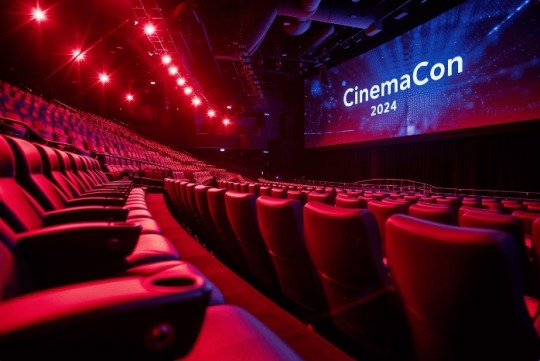
It has already been announced that Sony is sitting this year out, so no info on VENOM 3: THE LAST DANCE, to be released October 25, 2024.
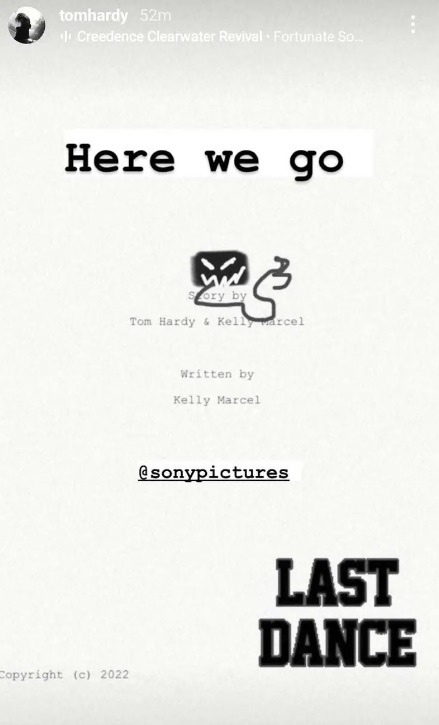
While I assume there will be some changes to the lineup, so far it is shaping up to be:
OPENING DAY: International Day features a screening of Universal 80s series remake THE FALL GUY starring Ryan Gosling, Emily Blunt, Hannah Waddingham and Aaron Taylor-Johnson (who has said in a recent interview that it is a small role) ; directed by David Leitch (BULLET TRAIN, DEADPOOL 2)
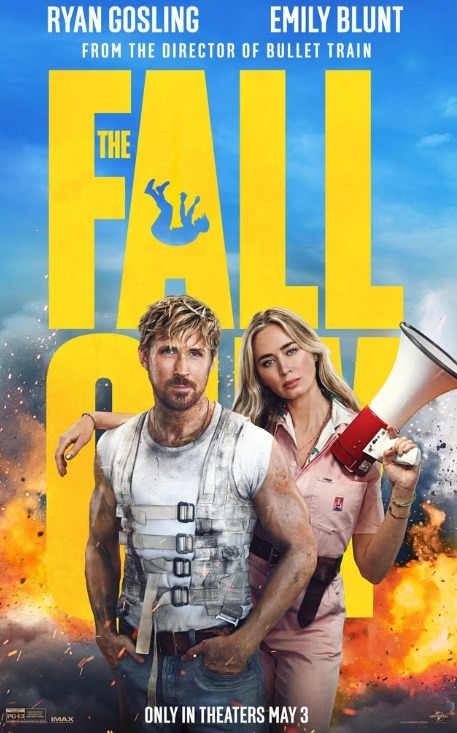
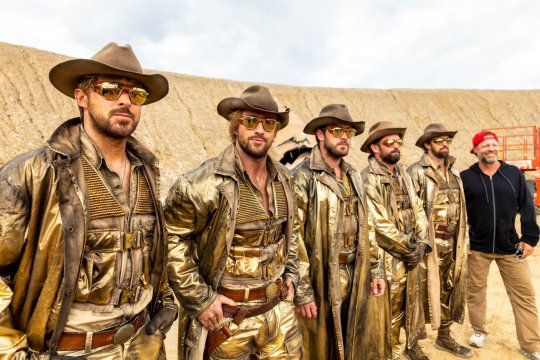
DAY ONE: WB pulls up with their presentation "The Big Picture". It will be the first Cinemacon for James Gunn in his position as Co-Chairman and Chief Executive Officer of DC Studios.
I expect a song and dance from Gunn about how awesome sauce the new DC film universe will be
I'll believe it when I see it.
Sure to tease SUPERMAN LEGACY which stars David Corenswet as the title character, Rachel Brosnahan as Lois Lane and Nicholas Hoult as Lex Luthor.
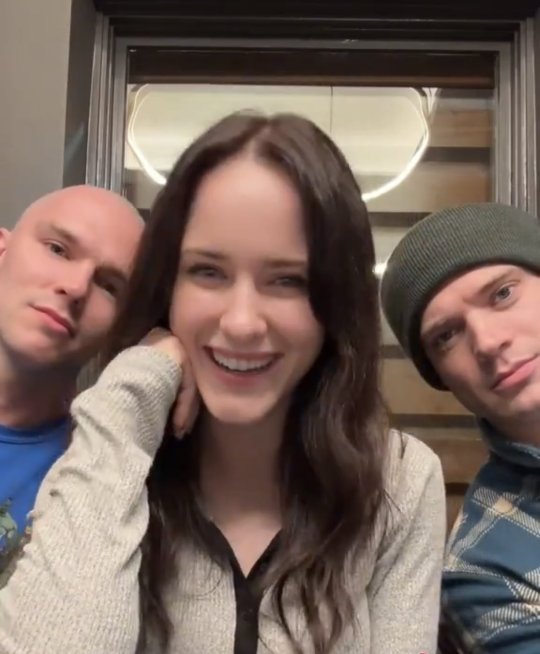
JOKER: FOLIE A DEUX, BEETLEJUICE, BEETLEJUCE
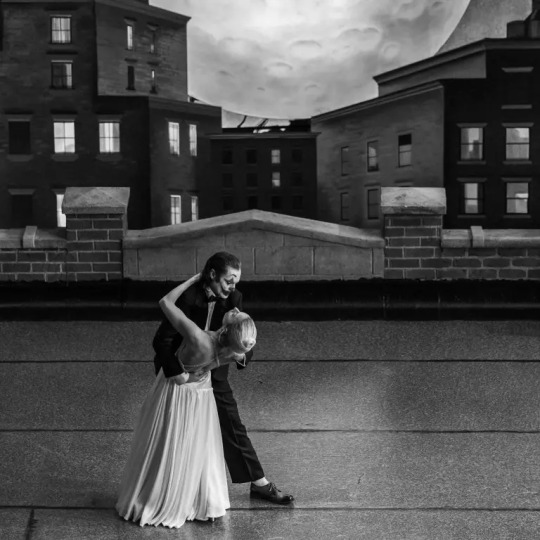
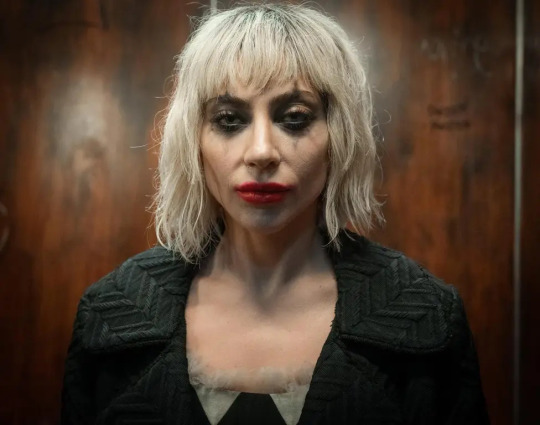
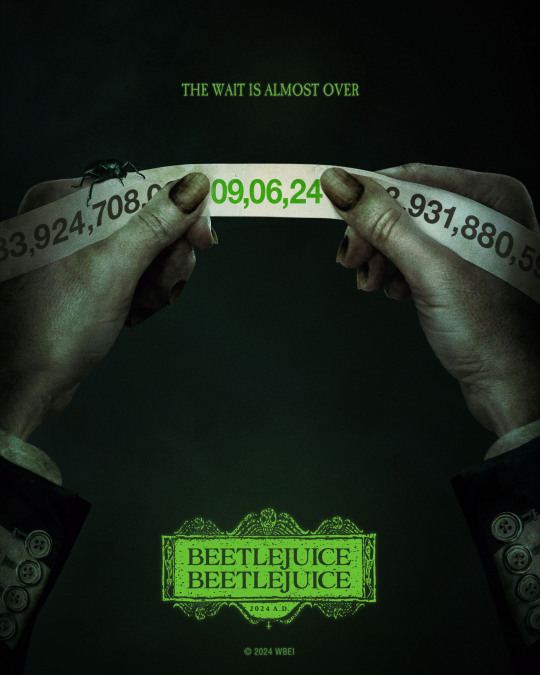
MORE STUDIO OFFERINGS
Also, FURIOSA: A MAD MAX SAGA
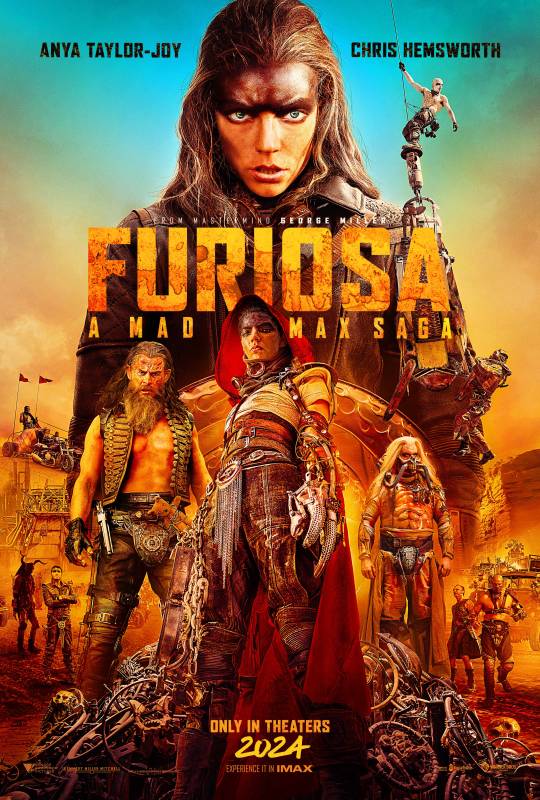
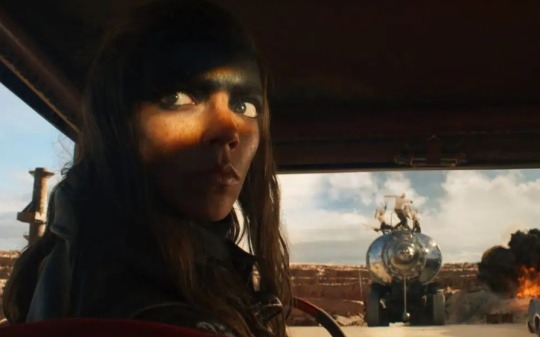
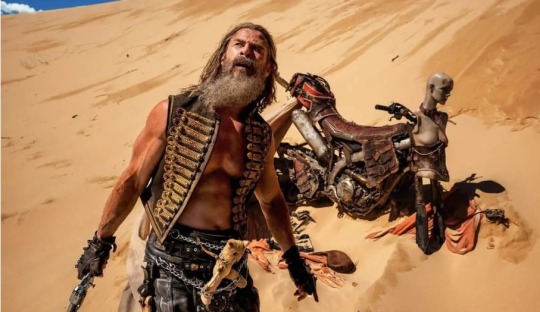
, the supernatural horror film THE WATCHERS, directed and written by Ishana Night Shyamalan, daughter of M. Night
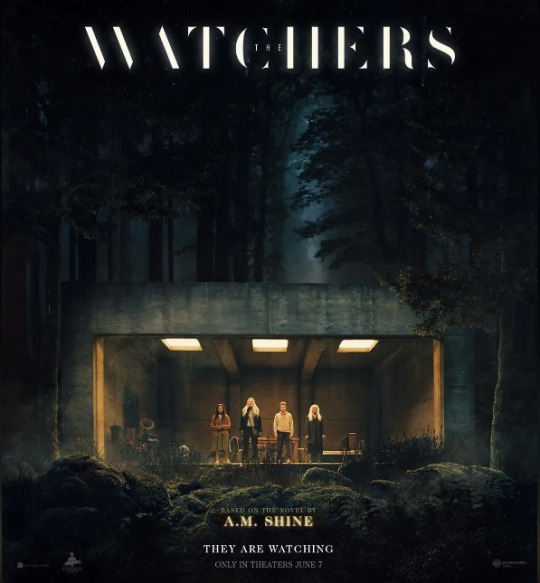
, M. Night Shymalan's TRAP starring Josh Hartnett, ALTO KNIGHTS with Robert DeNiro playing a dual role.
Certainly don't expect anything to hear about THE BATMAN sequel other than it won't shoot until 2025. There has been no reason provided, but some say there isn't even a script, others say it was because there were no soundstages available in London to shoot this year.
DAY TWO: ANGEL STUDIOS - The outfit behind SOUND OF FREEDOM.
I suspect they will tease SIGHT starring Greg Kinnear and BONHOEFFER (aka GOD'S SPY) about German theologian Dietrich Bonhoeffer, starring August Diehl, Flula Borg and Clarke Peters.
LIONSGATE: I suspect they will tease Guy Ritchie's THE MINISTRY OF UNGENTLEMANLY WARFARE starring a pick-a-mix of men for all tastes - Henry Cavill, Alan Ritchson, Alex Pettyfer, Henry Golding and Hero Fiennes Tiffins
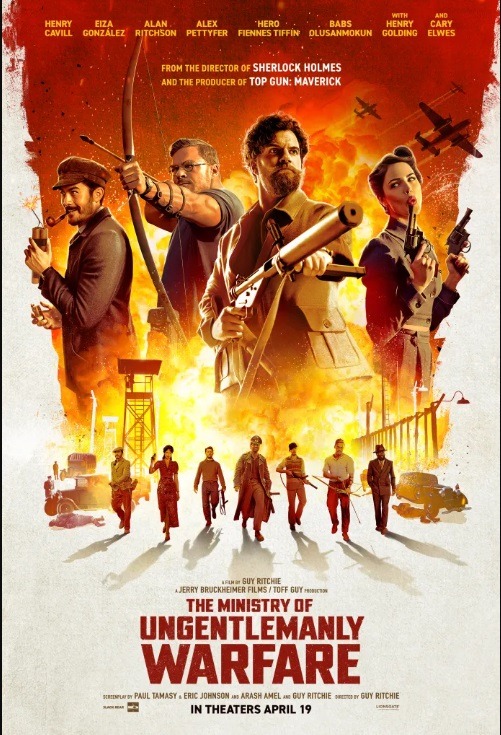
; the action-thriller BOY KILLS WORLD fronted by Bill Skarsgård and costarring Sharlto Copley, Andrew Koji (who is working like mad), Famke Janssen and Isaiah Mustafa.
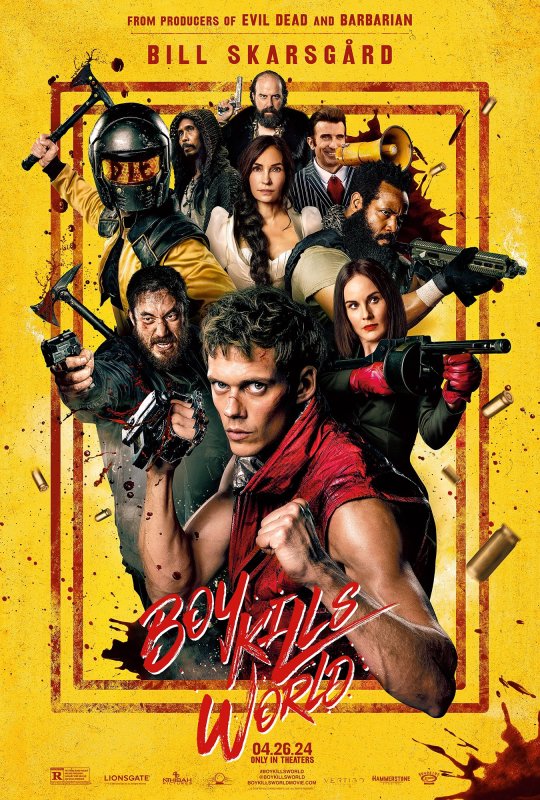
Surely, another Bill Skarsgård film THE CROW with fka Twigs
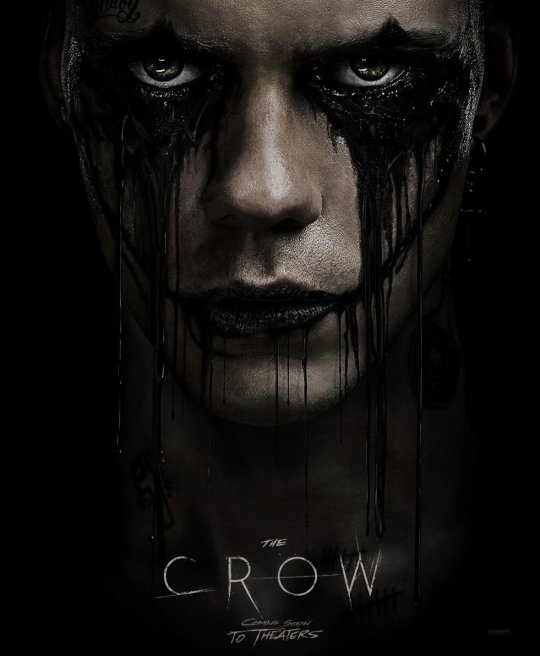
; THE STRANGERS: CHAPTER 1, which is the third film in the franchise - doing a bit of FAST AND THE FURIOUS mathing. It stars Madelaine Petsch, Froy Guittierez and Gabriel Basso
At long last the BALLERINA has pliete into the spotlight. This JOHN WICK spinoff stars Ana De Armas, with Anjelica Huston reprising her role from JOHN WICK 2. It's direct by Len Wiseman who directed the UNDERWORLD films starring his ex-wife Kate Beckinsale.
BORDERLANDS, an action-comedy based on the game, brought to the screen by Eli Roth. Starring Kevin Hart, Jamie Lee Curtis, Jack Black, Cate Blanchett, Haley Bennett and Édgar Ramírez, amongst others.
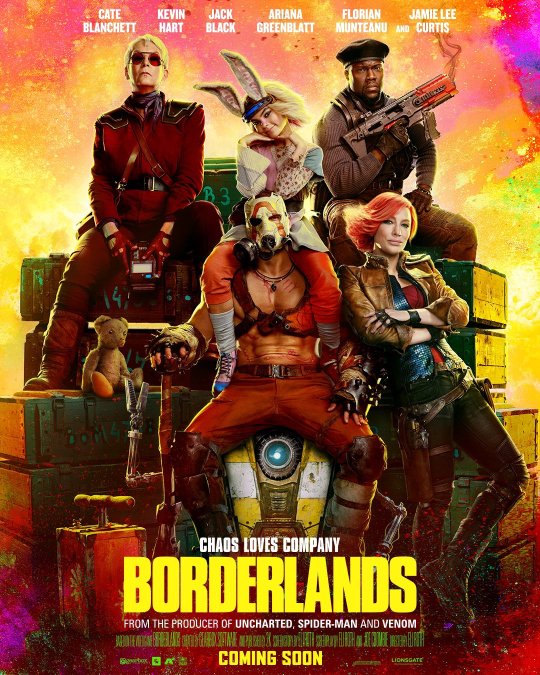
and WHITE BIRD, which is in the same universe as the excellent children geared film WONDER. It was due to come out in 2023 but was pushed back due to the actors strike.
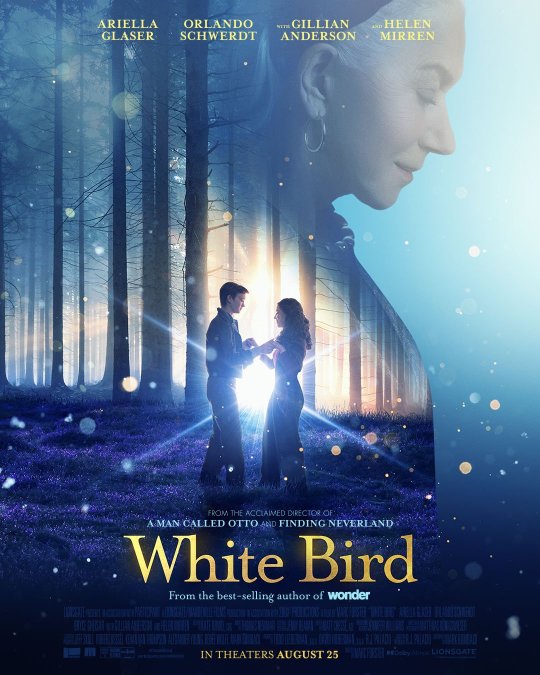
UNIVERSAL / FOCUS FEATURES: I suspect teases for Dev Patel's directorial debut MONKEY MAN. The film was originally slated to go to Netflix but Jordan Peele, under his Monkey Paw shingle, bought it and took it to Universal so it could have a theatrical release. *Granted, Netflix does a theatrical release for most of their films in certain markets, but I get Peele's rationale.
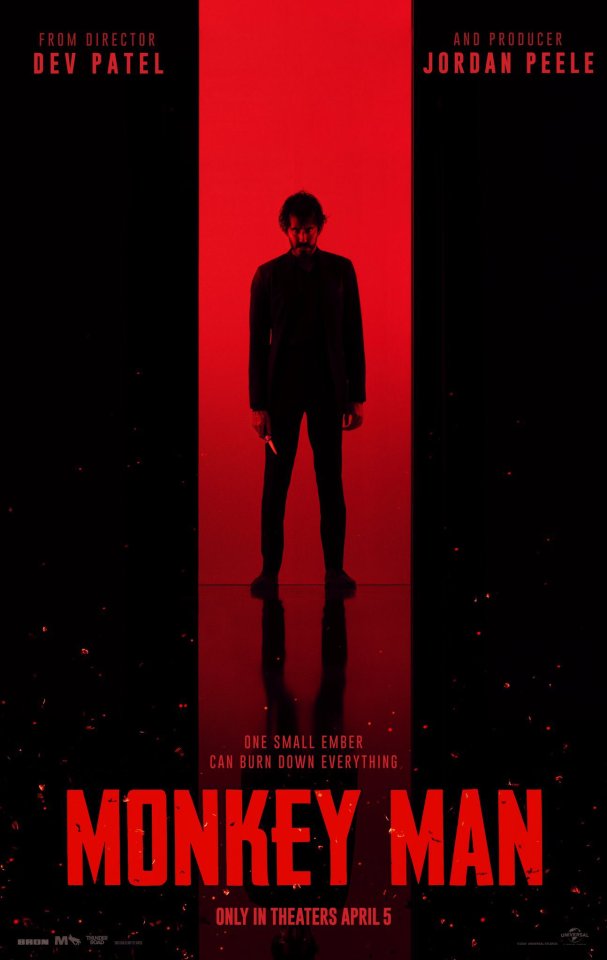
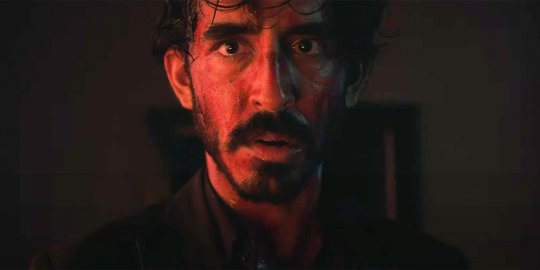
Their Monsters Universe theatrical idea didn't work, but Universal has realized there is more than one way to skin a cat. They are creating a Universal Monsters themed area at their parks and their monster/horror film ABIGAIL is a re-imaging of DRACULA'S DAUGHTER. It stars Alisha Weir, Melissa Barrera and Dan Stevens and features Angus Cloud in one of his last roles.
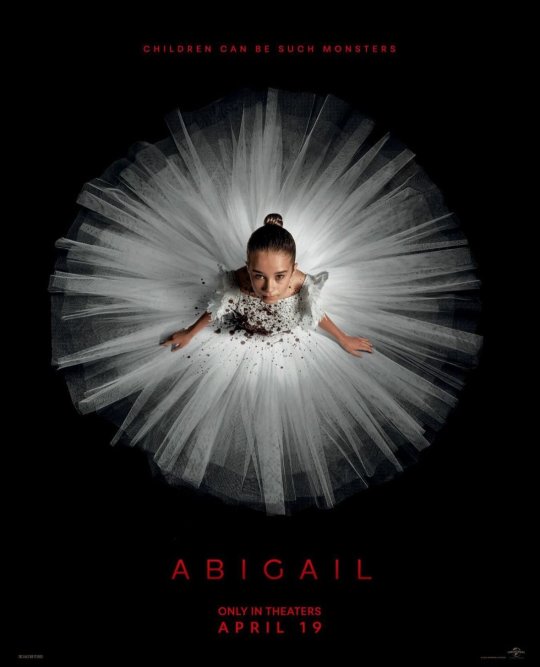
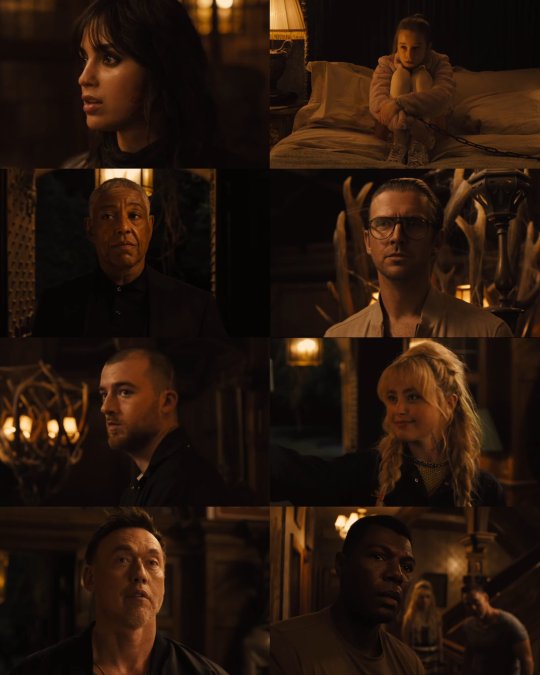
THE FALL GUY most definitely will have a place. Same with THE BIKERIDERS (with Austin Butler, Tom Hardy, Jodie Comer, Norman Reedus, Mike Faist, etc.), which was a 20th Century (Disney owned) Film, and even though it was the first major film out the gate ahead of Oscars/Golden Globes' FYC season with a screening and Q&A held in L.A., the studio purposely stalled the engine and towed it off their schedule. It will now be distributed by Focus Features in the U.S., and Universal, internationally.
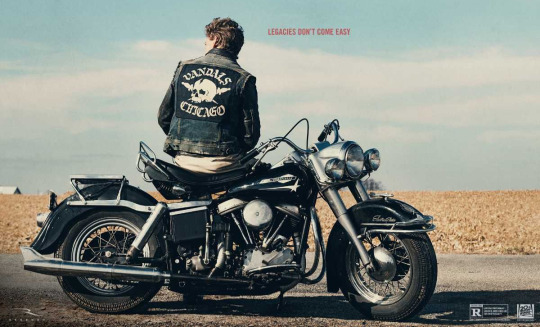
Other possible teases? DESPICABLE ME 4, TWISTERS, the standalone sequel to the 90s film TWISTERS
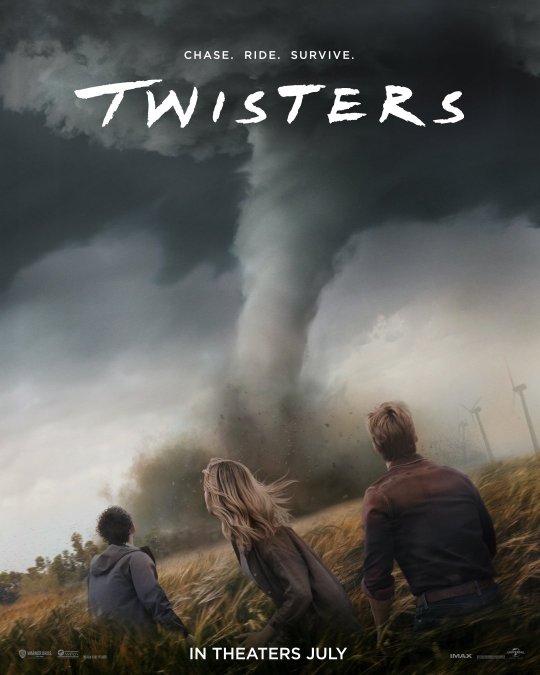
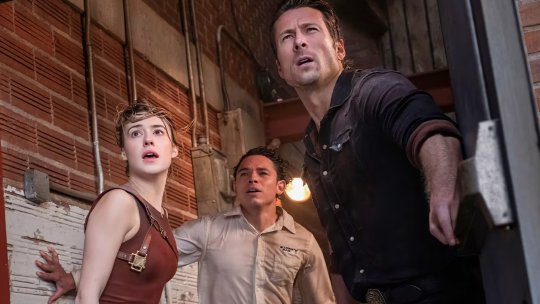
, horror film SPEAK NO EVIL starring James McAvoy and Mackenzie Davis
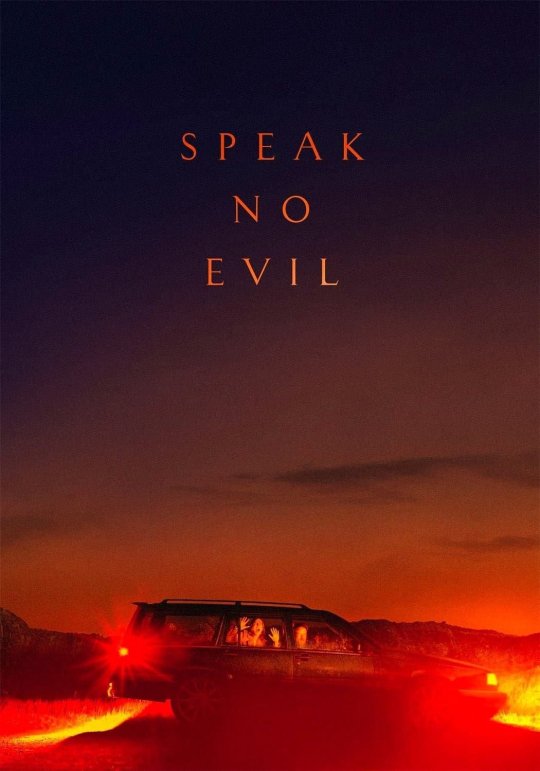
, WICKED: PART ONE and Sir Ridley Scott's GLADIATOR 2 with Paul Mescal and Pedro Pascal.
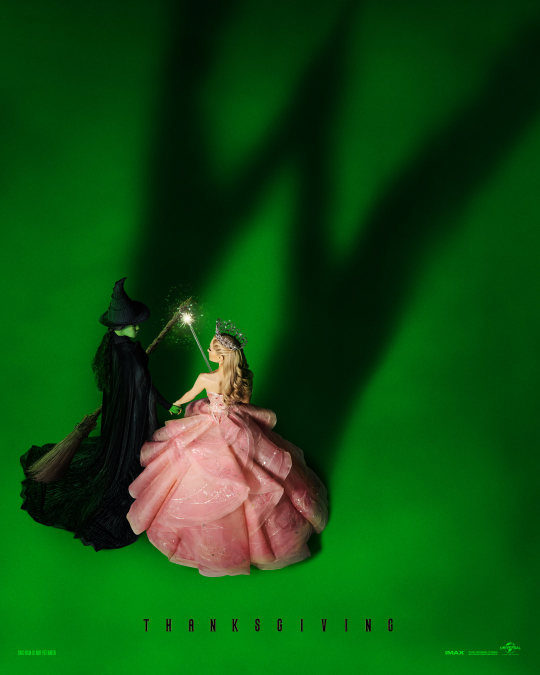
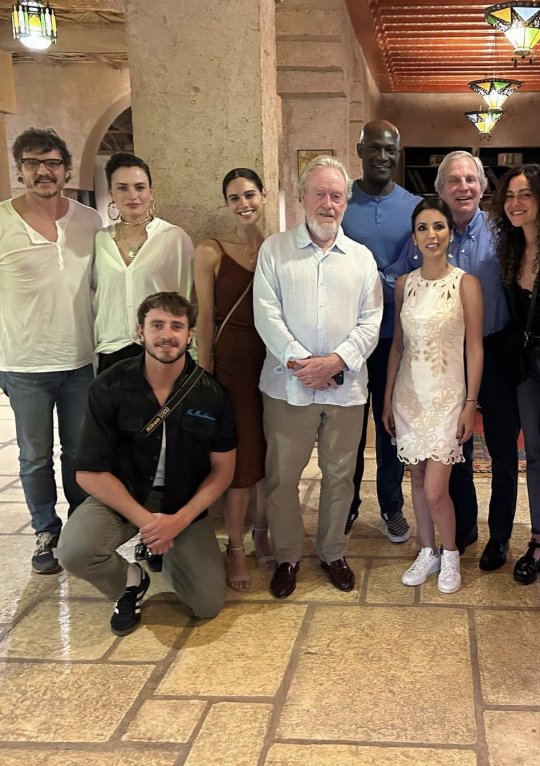
There will also be a surprise screening; studio unknown.
DAY THREE: PARAMOUNT: Expected: the mixed live-action and animated comedy IF starring Ryan Reynolds, written/directed and produced by John Krasinski.
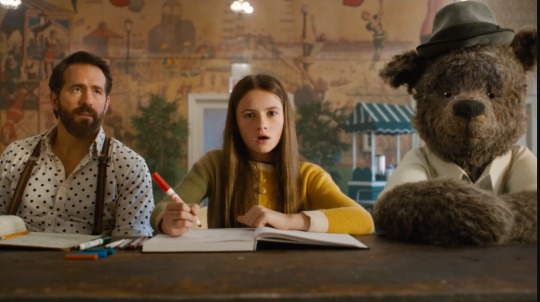
A QUIET PLACE: DAY ONE, GLADIATOR 2 (though this is a co-production with Universal, so maybe Uni will tout it), SONIC THE HEDGEHOG 3, the unending production that is MISSION IMPOSSIBLE 8,
WALT DISNEY: Possible: THE FIRST OMEN, KINGDOM OF THE PLANET OF THE APES
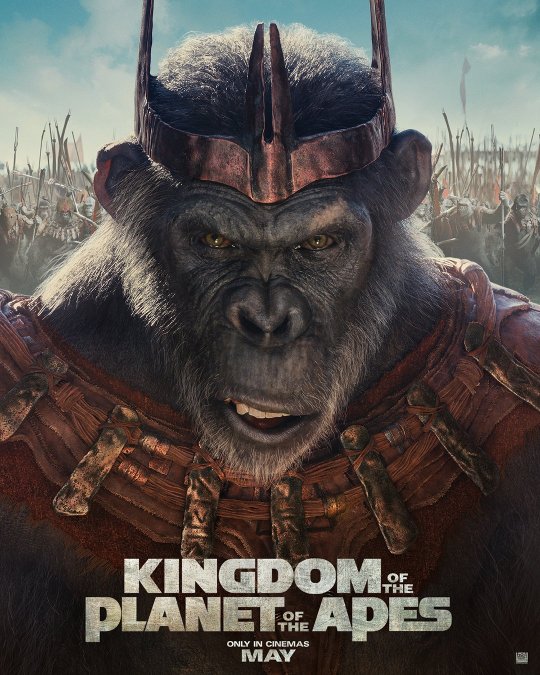
, MOANA 2, INSIDE OUT 2, DEADPOOL 3, ALIEN: ROMULUS, CAPTAIN AMERICA: BRAVE NEW WORLD and SNOW WHITE.
CinemaCon always closes out with their awards (which always ties into an upcoming release. Funny how that works.
So far the honourees are:
Star of the Year - Lupita Nyong'o (A QUIET PLACE: DAY ONE)
Breakthrough Performer of the Year - Joseph Quinn (A QUIET PLACE: DAY ONE)
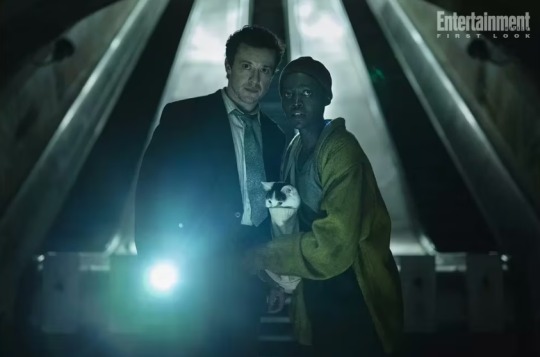
CinemaCon Vanguard Award - Amy Poehler (INSIDE OUT 2)
Director of the Year - Shawn Levy (DEADPOOL AND WOLVERINE)
#venom 3#cinemacon#the fall guy#ryan gosling#emily blunt#warner bros#superman legacy#david corenswet#rachel brosnahan#nicholas hoult#beetlejuice beetlejuice#the watchers#furiosa#furiosa a mad max saga#anya taylor joy#chris hemsworth#the ministry of ungentlemanly warfare#boy kills world#the crow#the crow 2024#bill skarsgård#the strangers chapter 1#borderlands#lionsgate#monkey man#dev patel#white bird#abigail#gladiator 2#paul mescal
13 notes
·
View notes
Text
Arts in the Garden 2023












In 2023 I was an exhibitor in North Van Arts' Arts in the Garden! Quite a bit of my work used plant materials and/or had themes around the environment/climate crisis, and in fact my ib art exhibition was originally conceived as being curated outdoors! So I was very excited to apply and very excited to have been able to show my work in this way!
The theme for the garden I was in was "Warm", and there were 2 other visual artists exhibiting with me, Donna Giruad and Thiseni Kristhorubadu! (who was actually a coworker and classmate of mine at the time, and it was complete coincidence we both applied for this event AND ended up in the same garden haha)
I also hosted a workshop as part of the event, making plant-collage books! which I pressed and dried a bunch of flowers/leaves for +brought other supplies. also made a lil how-to-fold a 1 page zine guide with lil drawn visuals! Was pretty popular with kids (one of my gluesticks and highlighters were destroyed lmao):



Artworks featured:
Rediscovery
Nests series: build a home and Flee The Nest
from the a life(,) you know(?) series: lending hands and a sweeter checklist
What Remains series
please return
2 dreams about disaster
Hazelnuts grow on trees
I also got news interviewed for this event!! Which is still wild to me haha v exciting; the news ppl came in while another artist and I were doing a first visit to the garden and figuring out where we wanted to place our pieces. I felt so rigid n tense during most of the interview orz but the interviewer was very nice and patient! Such a short clip was used in the video but I'm kinda glad for it haha I think they chose a good bit to include (out of all the who-knows-whatever-else i said lmao I truly can't remember) look at how cool and official I look what the heck man (cough back when my instagram handle was peppermint_moss lol):


Also I think I wrote waaayy too fucking much for my artist bio orz girlie you don't need to write that much askdlgh

The garden we were in was actually the one farthest away from me lmao and it was my first time driving on what I call a big boy spooky highway orz Was pretty daunting especially needing to drive there and back Twice for the 2 day event whooo man it was kinda stressful ;0; But I'm glad I did it! (Here's how a look at all my art n stuff packed in the car trunk ready to go):

Here's a few more photos I took of my pieces in the garden (I like how the dappled sunlight through the trees looks in these...)



2 notes
·
View notes
Text

So I was at Gamescom again. This year was seriously lame because once again too many of the bigger publishers were absent (I was especially sad about Square Enix not being there). Also I was hoping for Neowiz to make an appearance, because they were THERE to represent Lies of P, but without a public booth! There was a huge ass wall with Pinocchio on it somewhere and I spent my whole 3 days wandering the halls to find it, but I wasn't successful :( I even searched the business area, which is for people with an exhibitor's pass or press ticket only, but nope. The dev team had some interviews but other than that they made themselves scarce. I would've loved to meet them again. But hey one of them was waiting at the train station alongside me yesterday, that kinda lightened up my day a little.
I really hope Gamescom goes back to it's roots. It used to be much more of an experience than it is right now and it's gotten too common to bring video material instead of playable demo's. It seems like many publishers don't feel the need to come anymore bc they have either shifted to online marketing or they're making their own showcases. But while I get that it's not as profitable anymore, nothing beats the experience of a convention. And I will always be there.
10 notes
·
View notes
Text
William Fox Cuts "Les Miserables" Down
The Motion Picture News, 9 February 1918
William Fox announced this week that he could not cut " Les Miserables " to eight reels, and as a consequence the picture will go to exhibitors in nine short reels. Its total length, as the work stands completed, is substantially 8,400 feet, approximately 1,381 feet having been eliminated. This is about 400 feet short of the cuts which it had been proposed to make. "Shortening this picture to bring it within the length requirements of exhibitors has been one of the most difficult and heart-rending tasks ever imposed upon our organization," said William Fox this week in the course of an interview. "Mr. Lloyd, the director, thought the limit had been reached when he turned the production over to us. The film then measured 13,000 feet. For the showing at the Lyric Theatre in New York City we managed to cut it to 9,781 feet, and our opinion then was that we could not possibly take out another inch." "We realized, however, that further curtailment would be expected before the picture was released and accordingly a very careful and exhaustive study of the possibilities was made during the whole of the time the production was being run in New York. We sought opinions from everyone. Representatives of all departments of our organization saw the picture repeatedly, and finally, just prior to the last Lyric showing, all of these persons made a final inspection of the film and then submitted detailed written reports suggesting every sort of cutting or trimming which they considered feasible."
The Motography furthur reported that Fox said:
"An abstract of these suggestions, with others coming to us from outside sources, was made, and, using this as a basis, I began work with our editorial department on actual eliminations. The best we could do, however, was to reduce the total length to 8,400 feet. We did, it is true, actually get it lower than that, but I declined to let all of these eliminations stand." "There were some sacrifices I could not consent to make — sacrifices, not of the story value of the production, but of its artistic side. I insisted that these be restored and I think when exhibitors see the picture they will agree with me that there is not a scene of it, not an incident, that can be spared."
The two main scenes that were cut were Fantine leaving Cosette with the Thenardiers (instead Fantine is first introduced in the factory) and Jean Valjean's escape from prison (partially cut, and besides it wasn't the whole scene on the Orion, he simply goes over a wall)
The remainder of the eliminations are trims. The battle scenes have been shortened and so has the death scene. There also has been some slight shaving of the hero's experiences in the sewer and of the incident leading up to Javert's renunciation of his life-long policy of hounding Jean Valjean.
2 notes
·
View notes
Text
My god, I am casually (excitedly) catching up on all that I've missed for the whole month and some change that I was away from everyplace thinkable. Now that I'm having the longest break until I'm back on my feet again, let me do a skinny.
The feature I had with a local news outlet could not have come at a better time. June kicked off with a rocky start within the art community, and prior to the taping of that episode, a gaming event shitshow unavoidably made it under everybody's radar. (You may want to checkout CON/Quest if you want to read deep into the lore). With the privilege given, I pushed my personal advocacy as both an exhibitor and an event organizer known. All I'm willing to say is that by an (un)fortunate turn of events, my words aimed towards one event fiasco fit the bill for another convention fiasco. Ain't that fate. (And if you ever want to check out the interview... good luck finding it without asking me🌚)
My convention prepwork and the moments leading up to the Pride event, save for a couple of difficulties (lack of sleep, crunch times, losing the will to live in the process), I am proud to say what an absolute delight the three weekends have been. The collaboration pack between me and one of my greatest friends sold like hotcakes, and I wouldn't have traded the experience for anything else, honestly. Might even be the best event in terms of sales, too!
I thought I wasn't going to survive the next work event I had after that, but my body managed to power through last weekend. This is running on ≤5 of sleep at a time, and much less on the event days, but it felt like I was still riding along the high from all the other big events in my life. I got to see a lot of my work in large-scale printing, and other people besides my co-workers have appreciate the work I've put into designing merch products.
But all of this is tiring, and I promised myself that I won't be tabling at conventions anytime soon for the sake of better health and work focus (even though I mostly dislike everything else I do over there). Couldn't have been better timing, but the best thing I want now is to learn, write, and draw lots of things. I'm trying to hold myself accountable to all of these goals now, so here's to hoping for more fanart/fanfic, and everything else in between.
Before I forget: Happy Pride! 🌈
#personal#text post#life update!#tl;dr good shit happened and i reaped a lot of benefits from these three incidents in my life#pivotal moments i must say#now i rest
2 notes
·
View notes
Text
Partner with Us: Call for Media Partners at the 15th World Gastroenterology Conference
The 15th World Gastroenterology, IBD & Hepatology Conference, taking place from December 17–19, 2025, in Dubai, UAE, is calling for media partners to collaborate in promoting groundbreaking research, industry advancements, and the latest developments in gastroenterology, IBD, and hepatology.

Why Become a Media Partner?
🔹 Expand Your Reach — Get exposure to a highly engaged audience of gastroenterologists, hepatologists, researchers, and healthcare professionals.
🔹 Exclusive Access to Experts — Conduct interviews and publish insights from leading medical professionals shaping the future of GI healthcare.
🔹 Brand Visibility — Your logo and branding will be prominently displayed on conference materials, social media, and the official website.
🔹 Priority Access to Scientific Content — Stay ahead with firsthand updates on cutting-edge research and technological advancements.
🔹 Networking Opportunities — Connect with speakers, delegates, and exhibitors to establish valuable industry relationships.
Who Should Partner with Us?
✔ Medical News Websites & Journals ✔ Healthcare & Pharma Media Houses ✔ Scientific & Academic Publishers ✔ Professional Associations & Societies ✔ Digital & Print Healthcare Publications

How to Get Involved?
We invite media partners to collaborate with us in various capacities, including press coverage, article features, promotional support, and content sharing.
📩 Interested? Contact us to explore partnership opportunities and discuss how we can work together.
For more details, visit: https://gastroenterology.utilitarianconferences.com/
Be part of the conversation that’s shaping the future of gastroenterology! 🌍🔬
#GastroConference2025 #MediaPartnership #HealthcareNews #GIResearch #MedicalMedia #HepatologyUpdates
#gastroenterology#hepatology#ibd#digestivehealth#liverdisease#gihealth#inflammatoryboweldisease#guthealth#hepatitis#gi
0 notes
Text
Source Fashion 2025 Poised To Continue The Sustainability Conversation At Olympia London

2025 may be a New Year, but some things about the fashion sphere certainly won’t change in that year – such as the importance of the sector continuing to optimise its sustainability practices.
So, the return of the responsible fashion show Source Fashion, scheduled for Olympia London from 18th to 20th February, will be a timely one.
The event is expected to bring together hundreds of makers and manufacturers from such major sourcing regions as the UK, Turkey, India, Taiwan, China, Ethiopia, France, and Portugal. In one location in the English capital, international makers and manufacturers will have the opportunity to engage with the UK fashion buying community.
What can attendees expect from the leading European responsible fashion event?
Raw materials, fabrics, trims, packaging, and contract manufacturing services are all expected to be on display, and playing major parts in the conversation, at Source Fashion 2025. These elements, combined, allow for new product ranges to be brought to life.
A significant change for the event’s next edition will be an overhauled floor plan that categorises exhibitors by product type.
Also set to be introduced is a content space, Source Debates, focusing on tackling subjects of critical importance to sustainable fashion. It is expected to challenge the status quo and explore workable solutions by encouraging dialogue among industry experts, brands, and attendees.
Not everything about the February iteration of Source Fashion will be about change, however. The existing Catwalk Stage will be present and correct, showcasing live catwalks three times a day. Furthermore, guests at the event can look forward to case studies, panels, and interviews with major figures in fashion retail.
“Source Fashion is home to inspiration and endless possibilities”
Event director Suzanne Ellingham stated: “Our show nourishes meaningful connections. We are passionate about bringing the brightest minds in the industry together by enabling global manufacturers and suppliers to meet with buyers who want the security of knowing every conversation is one that could lead to the creation of a new range.”
Describing the event as “home to inspiration and endless possibilities”, she added that the organisers would be “announcing a host of new content and continuing to delve into the big questions around fashion, sourcing, de-growth, and the language of sustainability.”
With the July 2024 show having seen such household-name and influential brands and retailers in attendance as ASOS, John Lewis, House of Fraser, Lyle & Scott, Reiss, Toast, Sainsbury’s, and Paul Smith, few industry observers would bet against the February 2025 edition being a similar success story.
Transform and optimise your fashion brand’s growth journey with Skywire London
Whatever your own brand’s engagement with sustainability matters has been so far, and whatever positioning you might look to adopt in the future, you will almost certainly recognise the importance of having the right strategic, creative, and marketing professionals by your side.
This is precisely what a partnership with Skywire London can make possible for your brand, as you look to deliver the consistent digital excellence that will drive awareness, sales, and growth.
For a chat to us about what it could mean to make us your fashion, luxury, or lifestyle marketing agency for 2025 and beyond, please don’t hesitate to get in touch with our team.
0 notes
Text
Exhibitor Chats @ Curve New York, Summer 2023: Part 1
Last month, “The Chronicles of Piercing Ken” was on point for the Curve New York Summer Showcase at the Javits Center. We’ve attended for this outlet a few times and its the trade show that focuses on the latest and greatest lingerie designers along with some swimwear and assorted accessories. While it runs in tandem with the NY NOW Gifting Show they are not connected at all but I think buyers at…

View On WordPress
#cheeky cherry#curve expo#curve new york#curve new york 2023#exhibitor interviews#honey cloudz#javits center
0 notes
Text
Effective Ways to Promote Your Port and Shipping Trade Show
Promoting a trade show in the shipping industry may not seem as exciting as marketing luxury cars or advanced technology. The significance of a Port and Shipping Trade Show cannot be understated. This sector is crucial in enhancing global trade, connecting various businesses, and fostering innovation. Therefore, it is essential to understand how to effectively promote a port and shipping trade show in an industry dominated by cargo and logistics.
Leverage Digital Channels
The shipping industry is more than just large vessels and containers. It is a close community. Focus on the platforms they actively use to reach this audience effectively.
Share regular updates, sneak peeks as well as interviews with keynote speakers to engage your audience. Highlight case studies that demonstrate the business opportunities created by trade shows or international transport expo. It is important to maintain a professional yet relatable tone in your communications. Professionals in the shipping sector appreciate real-world examples rather than vague statements.

Additionally, consider running geo-targeted ads focusing on logistics hubs and port cities. This approach will help you connect with the right audience and enhance your trade show’s visibility within the industry.
Engage with Key Stakeholders Early
Engaging with key stakeholders early is crucial for the success of your trade show. Your most valuable promotional allies include exhibitors, sponsors as well as industry influencers. Provide exhibitors with promotional toolkits.
They are likely to share the information of your international transport expo when you make it simpler for them to promote the event. Consider offering VIP access or speaking opportunities to encourage their participation in influencers. Think of these stakeholders as co-captains. They will help guide your event toward success.
Invest in Eye-Catching Visuals
Investing in eye-catching visuals is essential, especially since shipping is not naturally photogenic. However, you can make it appealing by using professional visuals. Consider incorporating drone footage of busy ports, sleek animations of shipping routes, or dynamic images of advanced maritime technology. Good quality content captures attention while conveying a professional sense.
Ensure that your branding is the same and effective across all promotional materials. Maintaining consistency helps build trust with your audience. A unified look and feel will enhance recognition and reinforce your message throughout the promotional campaign of the international transport expo.
Highlight Networking Opportunities
Highlighting networking opportunities is essential for any Port and Shipping trade show. At their core, these events are about making connections. Shipping professionals attend not only to see exhibits but also to network with others in the industry.
It is important to market this aspect heavily. Promote after-hours networking events, cocktail receptions, and matchmaking tools that facilitate connections among attendees. This is not just another trade show but a chance to meet industry leaders and forge deals that can impact global trade.
Conclusion
In conclusion, promoting a port and shipping trade show may not seem like a glamorous task, but with the right strategy, it can be transformative. Focus on authenticity, leverage digital tools effectively, and connect with your audience where they are. In this industry, making waves begins with careful planning. So, host the best Port and Shipping trade show with the assistance of services from CILFand get started on your promotional efforts.
0 notes
Text
Exhibitor Chats @ Curve New York, Winter 2024: Part 2
Earlier in the month, “The Chronicles of Piercing Ken” was once again in attendance for the Curve New York Winter Showcase and as I’ve mentioned this is the trade show that focuses on intimates like lingerie and also showcases swimwear and assorted accessories. The show runs in tandem with the NY NOW show and it takes place in Javits Centers River Pavilion. As noted, the general public is not…

View On WordPress
0 notes
Text

Comic News Insider Episode 1546 - NYCC Recap! Interview w/ Tom King!
Comic News Insider: Episode 1546 is now available for free download! Click on the link or follow on Spotify/subscribe on iTunes!
It's our New York Comic Con (NYCC) recap! Jimmy is joined by Producer Joe to talk about the days they attended. They give their overall thoughts on attendance, hours, set up, artist alley, small press, exhibitors, and more. Jimmy talks about the 9 interviews he got with the likes of Tom King (whom you'll hear in this episode), Derek Kirk Kim, Ruth Chan, Jeffrey Brown, Cecilia Lim (Kwento Comics), Tony Moy, Fred Van Lente, Brian Volke-Weiss, and Zach Hoag (Tuttle Publishing). He also attended the press rooms for Batman Ninja vs Yakuza League, Batman Azteca and Teen Titans Go! Producer Joe covered some as well and got an interview with Elinor Taylor (The Balloon Hunter) and did the press room for The Walking Dead: Daryl Dixon - The Book of Carol.
Jimmy talked to the prolific writer Tom King. They discussed his time as a CIA officer, his current multiple comics out including Wonder Woman/Animal Pound/Jenny Sparks, the upcoming Green Lantern series, the Supergirl movie, Archie comics, and so much more. Thanks to Tom for taking the time.
Also, get a hold of us!
Email
Facebook
Comic News Insider
Jimmy's Socials: Instagram/Bluesky/Twitter
Thanks for listening!
1 note
·
View note
Text
3 Oct | Preparing for UCAS trip
SAS JOURNALISM
Our trip is running this coming Tuesday 8th October. Please remind yourself of the details on the trip letter.

TASK 1: As part of the trip, you will need to plan some interview questions. Have a think about what you would like to find out. A list of exhibitors can be found here. Please write 3x sets of 3 questions in your Supporting Document:
one set aimed at a lecturer / university staff
one set aimed at an employer / apprenticeship offerer
one set for a student rep
Keep these questions on your phone / on paper on the day of trip - you'll need to interview people on the day, and record their answers as accurately as you can. If you wish to voice record, you MUST request the person’s permission to do so first.
TASK 2: Explain your thoughts behind your planned questions - what question types have you used, and why? What insight do you hope to gain from your interviews?
On the day of the trip
It will be useful to take photos of the event and pick up relevant freebies on the day to bring to your Wednesday lesson.
Have your planned questions ready on your phone / on paper.
You'll need to interview 3 people on the day, and record their answers as accurately as you can.
If you wish to voice record, you MUST request the person’s permission to do so first.
0 notes
Text
The Role of Digital Media in India's Travel Exhibitions
In recent years, digital media has revolutionized how businesses, consumers, and travelers interact, and this transformation has been particularly evident in the realm of travel exhibitions. In India, events like the India International Travel Mart Ahmedabad (IITM) have been at the forefront of integrating digital media into their platforms, redefining how these exhibitions operate and how they engage with audiences.
The Rise of Digital Media in Travel Exhibitions
Digital media encompasses a wide range of tools, including social media, online advertising, websites, mobile applications, and virtual reality experiences. For travel exhibitions in India, these tools have opened up new avenues for marketing, networking, and enhancing the overall visitor experience.
Historically, travel exhibitions relied heavily on physical brochures, face-to-face interactions, and traditional advertising methods. While these elements still play a role, the integration of digital media has expanded the reach and impact of these events. With India being one of the largest and fastest-growing markets for travel, the role of digital media in exhibitions like IITM has become more crucial than ever.
Enhancing Visibility and Engagement
One of the most significant contributions of digital media to travel exhibitions is the enhancement of visibility and engagement. Platforms such as Facebook, Instagram, and Twitter allow event organizers to reach a broader audience by creating and sharing content that resonates with potential visitors. In the case of IITM, digital campaigns can promote the event months in advance, generating excitement and anticipation among travelers, industry professionals, and tourism boards.
Social media platforms also facilitate real-time engagement during the exhibitions. Live streaming of events, behind-the-scenes content, and interactive polls can keep the audience engaged, even if they are not physically present. This engagement not only boosts the event’s popularity but also creates a sense of community among attendees.
Moreover, the use of digital media extends beyond the event itself. Post-event content, such as highlights, interviews, and testimonials, can be shared online to maintain the momentum and keep the audience engaged until the next exhibition. This continuous engagement is essential for building a loyal following and establishing the exhibition as a must-attend event in the industry.
Personalization and Targeted Marketing
Another critical advantage of digital media is the ability to personalize and target marketing efforts. With tools like Google Analytics and social media insights, travel exhibitions can gather data on user behavior, preferences, and demographics. This data allows event organizers to create targeted campaigns that speak directly to the needs and interests of different audience segments.
For instance, IITM can tailor its digital marketing strategies to attract specific groups, such as adventure travelers, luxury tourists, or cultural enthusiasts. By delivering personalized content, the exhibition can increase its relevance to potential visitors, ultimately driving higher attendance and participation.
Targeted marketing also helps exhibitors connect with the right audience. Travel companies, hotels, and tourism boards participating in IITM can leverage digital media to promote their offerings to specific market segments, increasing the chances of meaningful connections and business opportunities.
Virtual Reality and Immersive Experiences
One of the most exciting developments in the intersection of digital media and travel expo's is the use of virtual reality (VR) and augmented reality (AR). These technologies offer immersive experiences that can transport visitors to different destinations without leaving the exhibition hall.
At IITM, for example, exhibitors can use VR to give potential travelers a virtual tour of their destinations. Whether it’s a walk through the bustling streets of Tokyo or a serene beach in the Maldives, these immersive experiences can inspire visitors and give them a taste of what they can expect.
Additionally, VR and AR can be used to create interactive exhibits that engage visitors in new and innovative ways. These technologies not only enhance the visitor experience but also provide a unique selling point for exhibitors, making their booths stand out in a crowded exhibition space.
Facilitating Networking and Business Opportunities
Digital media has also transformed how networking and business opportunities are facilitated at travel exhibitions. Platforms like LinkedIn and event-specific apps enable exhibitors and attendees to connect before, during, and after the event. These platforms provide opportunities for networking, setting up meetings, and sharing contact information, making it easier for industry professionals to establish and maintain relationships.
In the context of IITM, digital tools can help streamline the matchmaking process between buyers and sellers. Exhibitors can use these platforms to showcase their products and services, while buyers can browse offerings and set up appointments with exhibitors who meet their needs. This level of connectivity enhances the efficiency of the exhibition and increases the chances of successful business deals.
Challenges and Future Directions
While digital media offers numerous benefits to travel exhibitions, it also presents challenges. The rapid pace of technological change means that event organizers must continually adapt to new tools and platforms. Additionally, the reliance on digital media requires a robust infrastructure, including reliable internet connectivity and digital literacy among participants.
Looking ahead, the role of digital media in travel exhibitions is likely to grow even further. The continued evolution of VR and AR, the increasing importance of data analytics, and the rise of new social media platforms will all shape the future of events like IITM. As these technologies develop, they will provide even more opportunities for engagement, personalization, and innovation in the travel exhibition space.
Conclusion
In conclusion, digital media has become an integral part of India’s travel exhibition's, particularly at events like IITM. By enhancing visibility, engagement, personalization, and networking opportunities, digital media has transformed how these exhibitions operate and interact with their audiences. As technology continues to evolve, the role of digital media in travel exhibitions will only become more significant, offering exciting possibilities for the future of the industry.
0 notes